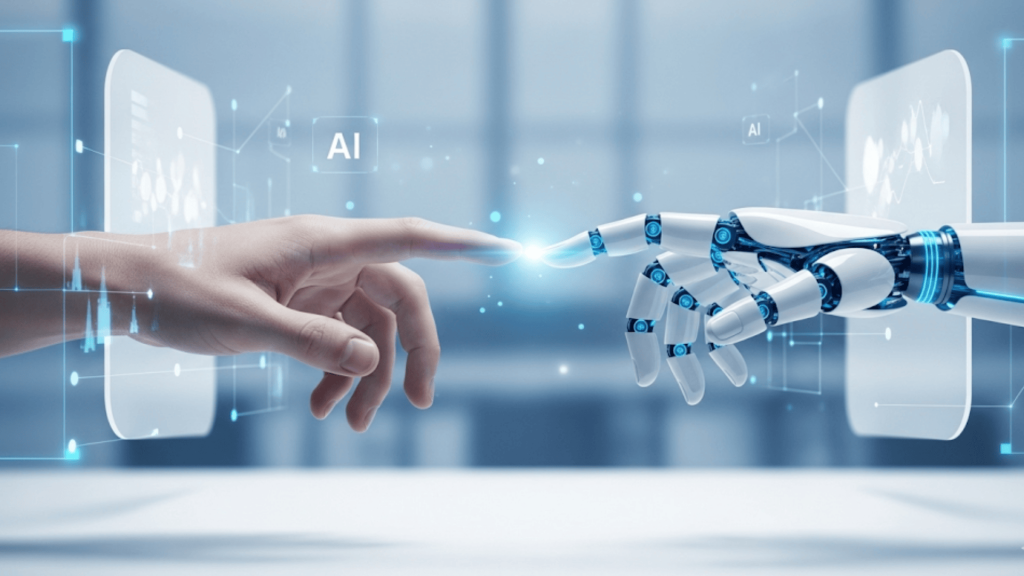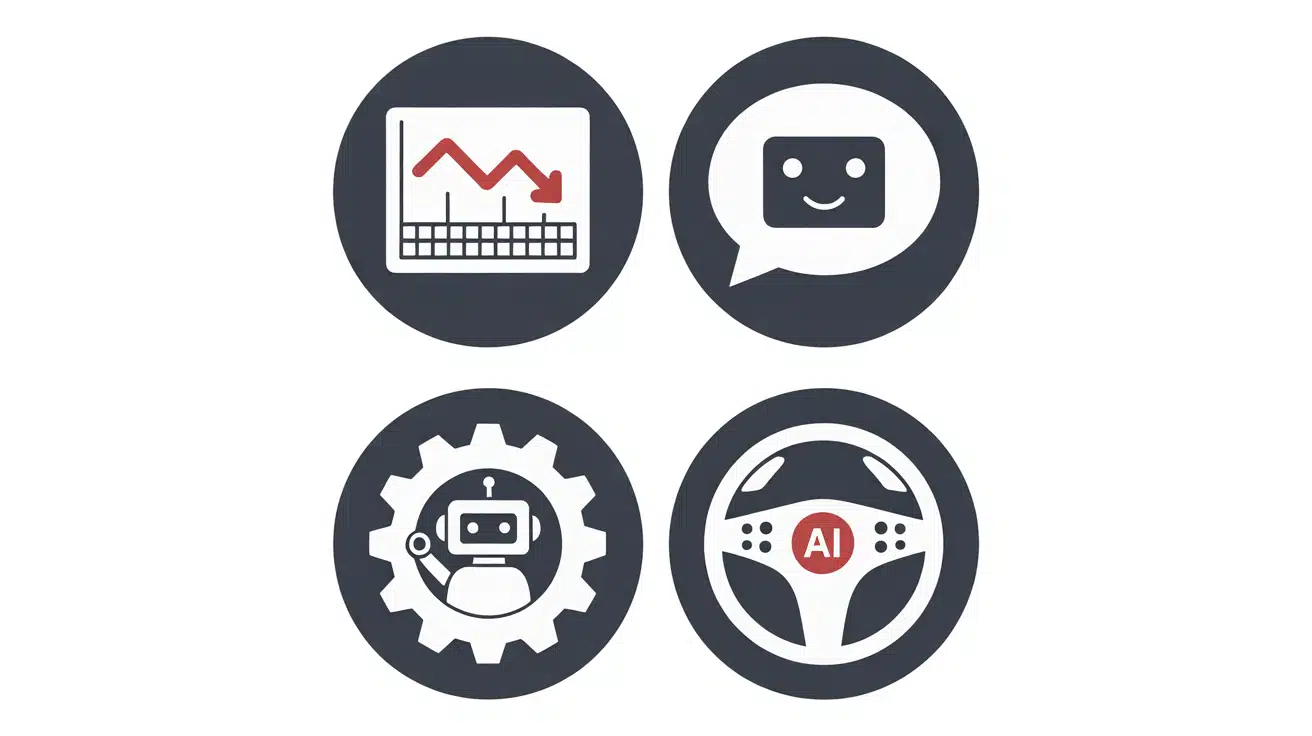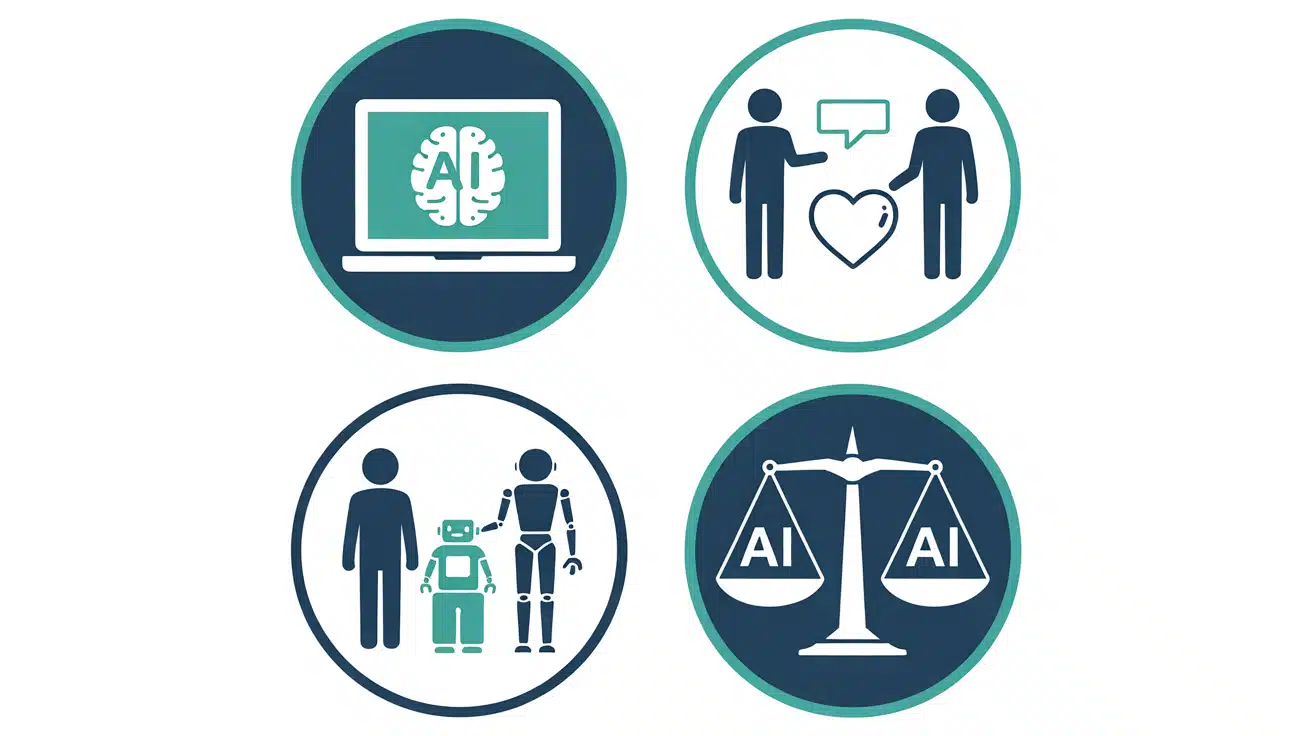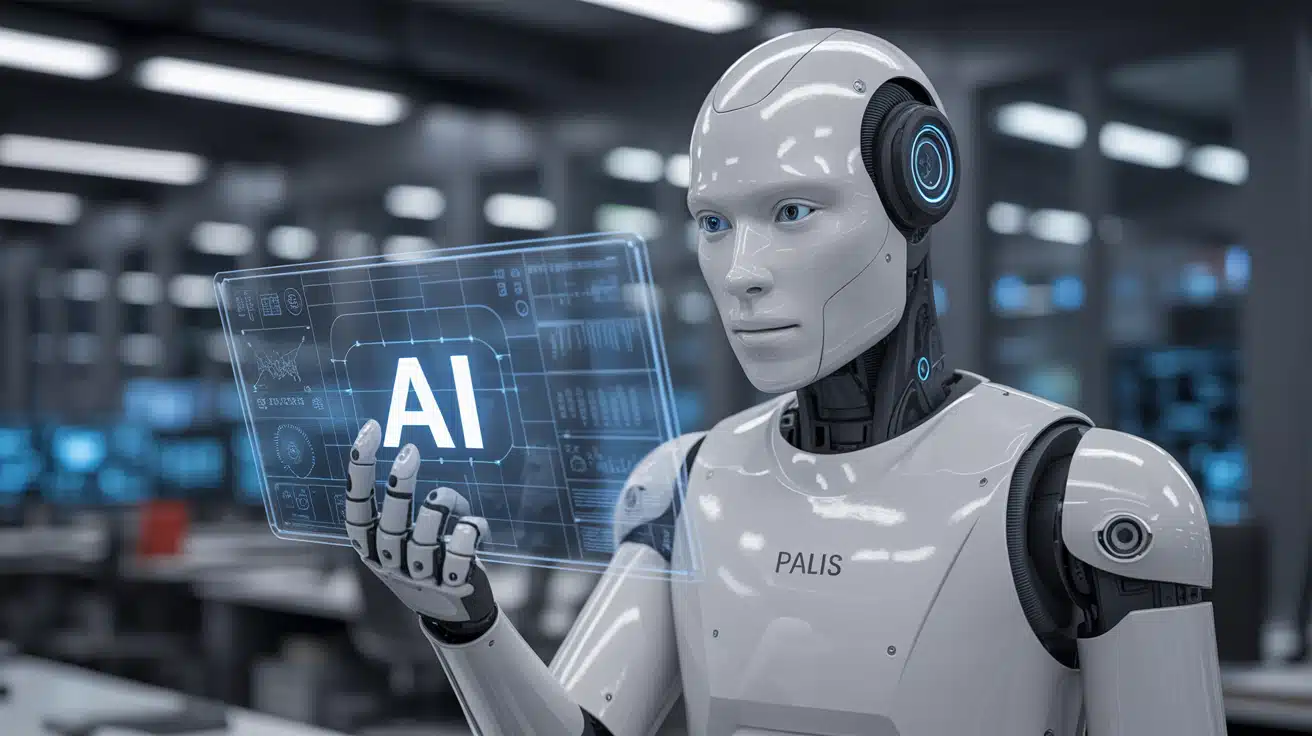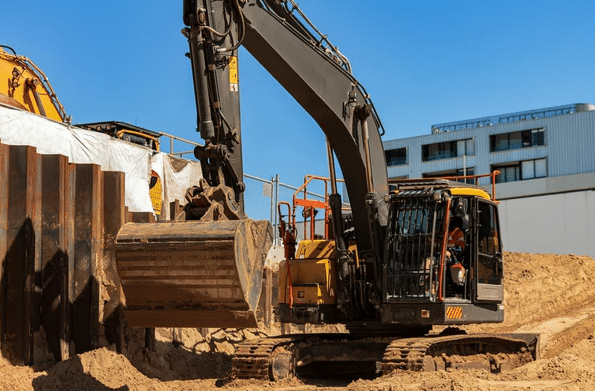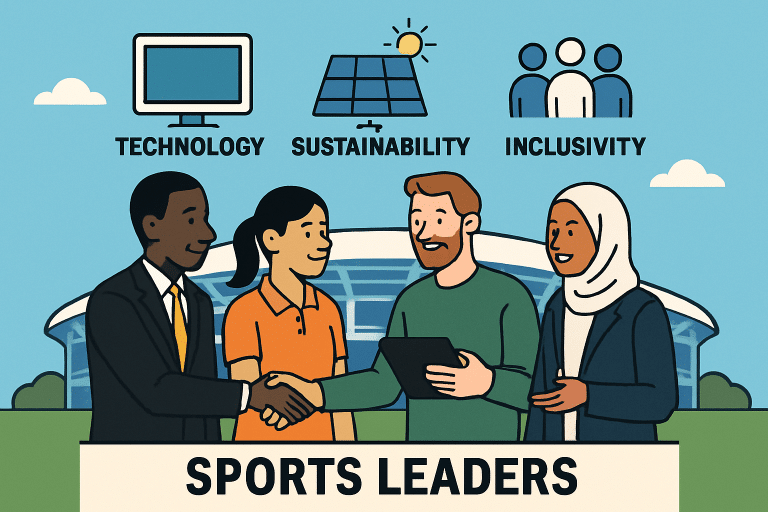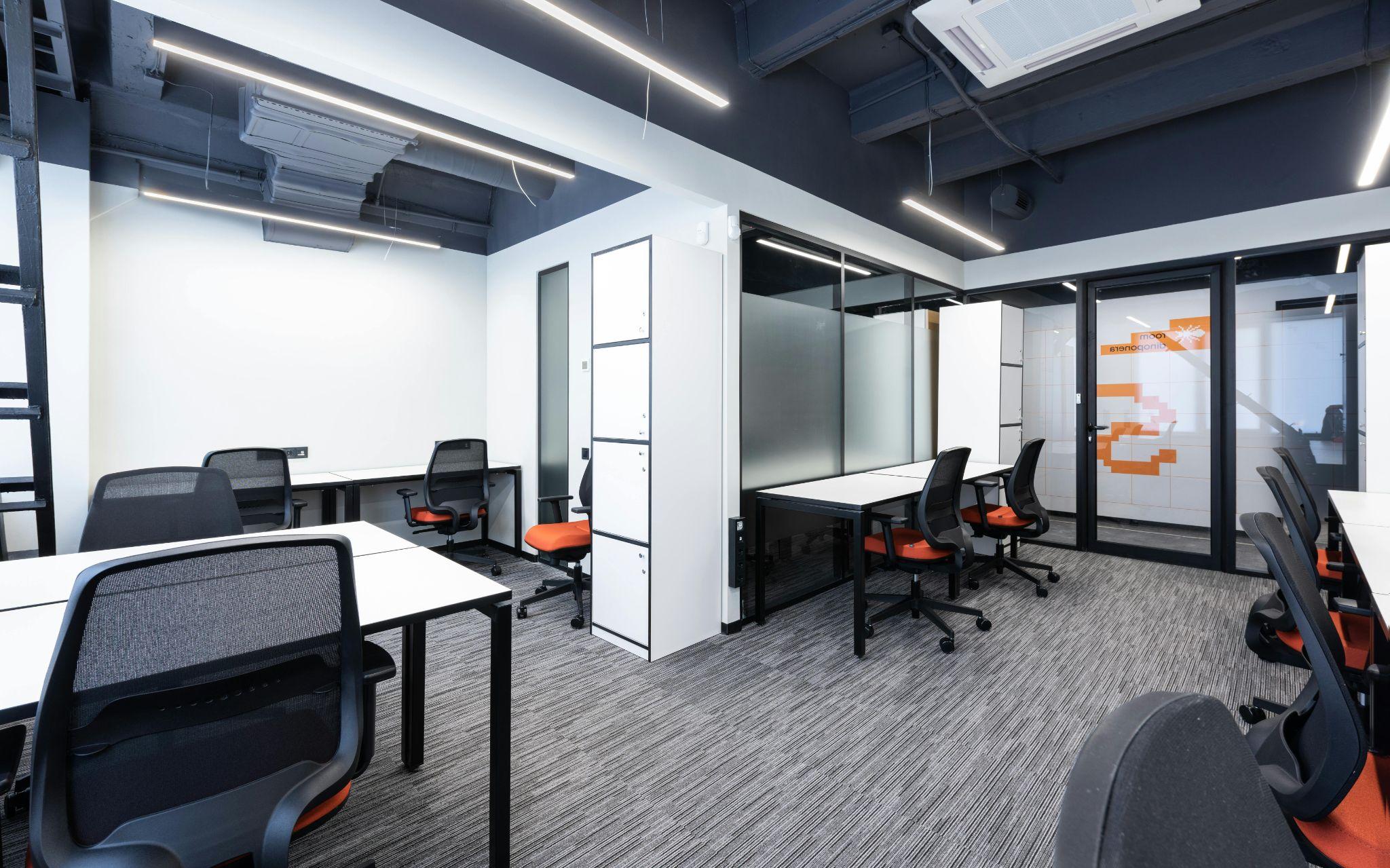Will AI steal your job next year?
This question worries millions of workers today. You see AI tools everywhere. ChatGPT writes emails. Robots work in factories. Self-driving cars are being tested on roads.
But here’s the truth: AI won’t just destroy jobs. It will create new ones as well.
The future of work with AI is coming fast. Some jobs will disappear. Others will change completely. Many exciting new careers will appear.
In this blog, I’ll show you exactly which jobs AI will replace first. You’ll learn about new career opportunities AI creates. Additionally, I’ll provide you with simple steps to protect your career today.
What Is The Future of Work with AI?
The future of work with AI means humans and machines working together as a team. Instead of competing against each other, people will use AI tools to become more productive and effective.
This partnership creates better results than either humans or AI could achieve alone.
Here’s what’s happening right now:
- AI handles boring, repetitive tasks – Machines take over data entry, scheduling, and routine calculations
- Humans focus on creative, social work – People spend more time-solving problems and building relationships
- New jobs appear that need both human and AI skills – Hybrid roles combine technical knowledge with human judgment
- Workers learn to use AI tools daily – Employees integrate AI assistants into their normal work routines
Think of it this way: AI is like having a super-smart assistant that never gets tired. It doesn’t replace you completely.
Professionals seeking roles that emphasize these human skills can explore opportunities on platforms like RemoteJobsFinder that curate positions requiring strategic thinking and interpersonal expertise rather than routine task execution.
Timeline: This change is happening now, not in 20 years.
Jobs AI Will Replace
Now, let’s examine which specific jobs are most likely to be replaced by AI technology. Understanding these changes helps you prepare and make smart career decisions for the future.
1. Data Entry and Basic Admin Work
These jobs involve repetitive tasks that follow clear rules and patterns. AI systems can process this type of work much faster than humans without making errors.
Most companies are already replacing these positions with automated software.
Jobs at risk:
- Data entry clerks – Input information into computer systems and databases
- Basic bookkeepers – Record simple financial transactions and maintain records
- File organizers – Sort and categorize documents in digital filing systems
- Simple schedulers – Arrange basic appointments and manage simple calendars
Timeline: This is already happening in many companies right now.
2. Basic Customer Service Roles
Simple customer service questions follow predictable patterns that AI can handle easily. Chatbots can work 24/7 without breaks and never lose patience with difficult customers.
However, complex problems still require human problem-solving skills.
Jobs at risk:
- Phone support agents – Answer common questions about products and services
- Chat support representatives – Help customers through basic website issues
- Order processing clerks – Handle simple purchase requests and order changes
- Basic help desk workers – Solve routine technical problems and password resets
Timeline: Most companies already use chatbots for first-level support.
3. Manufacturing and Assembly Work
Factory work often involves precise, repetitive tasks that robots can perform more efficiently than humans.
AI-powered machines operate continuously without interruption and can identify quality issues that human eyes might overlook. Automation in manufacturing has been growing for decades.
Jobs at risk:
- Assembly line workers – Put together products following the same steps repeatedly
- Quality control inspectors – Check products for defects and manufacturing errors
- Package sorters – Organize items by size, destination, or product type
- Basic machine operators – Run simple manufacturing equipment with minimal oversight
Timeline: Most factories already utilize some form of automation and robotics.
4. Transportation and Delivery Jobs
Self-driving technology is improving rapidly and will eventually replace human drivers in many situations.
Highway driving and simple delivery routes are easier for AI to handle than complex city driving. However, full replacement will take time due to safety regulations.
Jobs at risk:
- Long-haul truck drivers – Transport goods on highways between cities and states
- Taxi and rideshare drivers – Provide basic transportation services in urban areas
- Package delivery drivers – Drop off parcels following simple route instructions
- Parking attendants – Monitor parking lots and collect fees from customers
Timeline: 10-15 years due to safety testing and government regulations.
High Impact Industries
| Industry | Risk Level | Timeline |
|---|---|---|
| Manufacturing | Very High | Now |
| Data Processing | Very High | Now |
| Transportation | High | 5-10 years |
| Basic Healthcare | Medium | 3-5 years |
Jobs AI Will Create
While AI will replace some jobs, it will also create many exciting new career opportunities. These new roles often pay well and offer job security because they require uniquely human skills, combined with knowledge of AI.
1. AI Training and Management Jobs
Companies need experts to train and manage AI systems. These roles require people who understand both technology and business needs.
The demand for AI specialists is growing faster than any other job category.
New jobs appearing:
- AI prompt engineers – Write instructions for AI systems to follow
- Machine learning trainers – Teach AI systems new skills and behaviors
- AI system managers – Oversee AI operations and fix problems
- AI quality testers – Make sure AI systems work correctly and safely
Timeline: These jobs are currently growing at a rate of 30% per year.
2. Human Connection and Care Roles
AI cannot replace human emotions and personal connections. People still want real human support for important life decisions.
These jobs will grow as AI handles more routine tasks and people value human interaction more.
Jobs are growing fast:
- Therapists and counselors – Provide emotional support and mental health care
- Personal trainers – Give motivation and customized fitness guidance
- Event planners – Create memorable experiences for special occasions
- Creative directors – Lead artistic vision and brand storytelling
Why humans win: AI lacks empathy, creativity, and emotional intelligence.
3. AI-Human Collaboration Jobs
The largest job growth occurs when humans collaborate with AI tools. These roles combine AI efficiency with human judgment and creativity.
Workers in these roles utilize AI to manage data, perform AI data mapping, allowing them to focus on strategy and decision-making.
Exciting new roles:
- AI-assisted doctors – Use AI for faster diagnosis while providing patient care
- Smart factory supervisors – Manage robot teams and solve complex problems
- AI-powered marketing specialists – Use AI for data analysis and creative campaigns
- Digital learning coaches – Combine AI tools with human teaching skills
How it works: Humans guide AI tools to achieve better results than either could alone.
4. AI Ethics and Safety Specialists
As AI becomes more powerful, companies need experts to ensure it’s used responsibly.
These professionals ensure that AI systems are fair, safe, and comply with legal requirements. Every major company using AI will need these specialists.
Critical new roles:
- AI ethics consultants – Ensure AI systems treat all people fairly
- AI safety engineers – Prevent AI systems from causing harm or errors
- AI compliance managers – Make sure AI follows laws and regulations
- AI bias auditors – Test AI systems for unfair treatment of different groups
Why it matters: AI decisions affect millions of people’s lives daily.
Growing Industries
| Industry | Growth Potential | Why |
|---|---|---|
| AI Development | Very High | Need more AI experts |
| Mental Health | High | More need for human support |
| Creative Services | High | AI helps humans be more creative |
| Education | Medium | Need AI-trained teachers |
How to Future-Proof Your Career
Now that you understand which jobs AI will replace and create, let’s focus on practical steps you can take today to protect and advance your career in an AI-driven world.
Step 1: Build Human-Only Skills
Focus on what AI can’t do:
- Creative thinking – Generate original ideas and innovative solutions to problems
- Problem-solving – Analyze complex situations that don’t have clear answers
- Leadership – Inspire teams and make difficult decisions under pressure
- Empathy – Connect emotionally with people and understand their needs
Quick tip: Practice these skills in your current job.
Step 2: Learn Basic AI Tools
Start with these simple tools:
- ChatGPT – Write emails, create content, and research topics quickly
- Grammarly – Fix grammar mistakes and improve your writing style
- Canva AI – Design professional graphics and presentations in minutes
- Calendar AI – Schedule meetings automatically and manage your time better
Goal: Spend 15 minutes daily trying new AI tools.
Result: You’ll work faster and produce better results.
Step 3: Stay Updated and Flexible
Monthly actions:
- Read AI news for 30 minutes – Stay informed about industry changes and new tools
- Take one short online course – Build new skills that complement AI technology
- Join AI groups on LinkedIn – Network with professionals using AI in their work
- Try one new AI tool – Experiment with emerging technologies before competitors do
Mindset: See AI as your helper, not your enemy.
What to Do Right Now?
If You’re in a High-Risk Job:
Don’t panic, you have time to prepare for these changes. Start learning your company’s AI tools today and practice using them in your daily work.
Develop management and leadership skills by volunteering for team projects. Take evening classes or online courses to gradually build new skills.
Network actively by attending industry events and meeting people in growing industries.
If You’re in a Safe Job:
Stay ahead of the curve by embracing new technologies early. Master AI tools in your field and become the office expert that others come to for help.
Look for opportunities to help colleagues learn these new systems and consider becoming a trainer or mentor.
Identify ways AI can enhance your current work processes and propose potential AI partnerships to your management team.
Wrapping It Up
The future of work with AI is not about humans fighting machines. It’s about humans working better with machines.
Yes, some jobs will disappear. But exciting new opportunities are appearing faster than old ones vanish.
The workers who succeed will be those who embrace AI early. They’ll use AI tools to work smarter. They’ll focus on uniquely human skills, such as creativity and empathy.
Start preparing today. Learn one AI tool this week. Practice skills AI cannot copy. Stay curious about new technologies.
The future belongs to people who can guide AI toward meaningful results. That person can be you.
What’s your biggest concern about AI changing your industry? Have you started using any AI tools at work yet?

